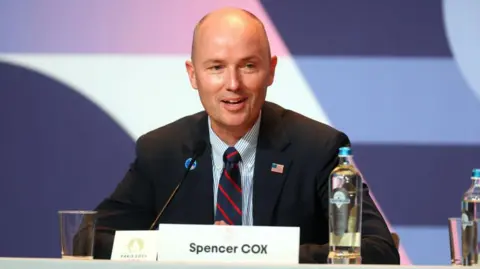Second Child Dies from Measles as Outbreak in Western Texas Escalates

In a deeply troubling turn of events, a second child has succumbed to the highly contagious measles virus in western Texas, amidst an alarming outbreak that continues to spread. This resurgence comes as a significant setback for public health, as measles was declared eliminated in the United States back in 2000. However, in recent years, a disturbing trend has emerged, with cases surging dramatically, particularly in regions with low vaccination rates.
As of Friday, the Texas Department of Health reported over 480 confirmed cases of measles this year, marking a sharp increase from the 420 cases reported just earlier in the week. This latest victim, an eight-year-old girl, tragically died early Thursday morning from what has been described as "measles pulmonary failure," according to hospital records obtained by the New York Times. Notably, this child had no underlying health conditions and was not vaccinated against the disease.
Aaron Davis, the vice president of the UMC Health System, emphasized the importance of vaccination in light of this tragic event. “This unfortunate event underscores the importance of vaccination,” he stated. “Measles is a highly contagious disease that can lead to serious complications, particularly for those who are unvaccinated.”
The first child to die from measles in this outbreak was a six-year-old girl from a local Mennonite community, also unvaccinated. This incident marked the first measles-related death in the United States in a decade. Additionally, an unvaccinated adult male in New Mexico has died after contracting the virus, although the cause of his death remains under investigation.
In total, the U.S. has reported more than 600 cases of measles this year, with the outbreak primarily centered in western Texas but also affecting neighboring states such as New Mexico, Oklahoma, and Kansas. Public health experts assert that these cases are likely interconnected, with nearly all infections occurring in individuals who have not received the measles vaccination.
Measles is known for causing a variety of symptoms, including fever, a distinctive red rash, and coughing, but it can also lead to severe complications such as pneumonia, encephalitis (brain swelling), and even death. The Centers for Disease Control and Prevention (CDC) notes that two doses of the measles vaccine are approximately 97% effective in preventing infection and significantly lessen the severity of the disease if contracted.
To establish herd immunity—where enough individuals within a community are immune to a disease to curb its spread—around 95% of the population must be vaccinated. Unfortunately, the current outbreak has roots in a religious community that is notably resistant to vaccinations. Local health officials in western Texas have expressed frustration at the slow progress being made to increase vaccination rates within these communities.
Robert F. Kennedy Jr., the Health Secretary who has attracted criticism for his handling of the outbreak, is expected to visit Texas this week following the child's death. Initially, Kennedy downplayed the severity of the outbreak, referring to it as “not unusual” as case numbers began to rise. However, he adjusted his tone following the loss of the first child, without directly advocating for vaccination. Instead, he has encouraged parents to consult with their doctors about vaccination, a stance that many public health experts find insufficient.
Additionally, Kennedy has controversially suggested that Vitamin A could serve as a treatment for measles, a notion that medical professionals caution against, stressing that it should only be administered under specific circumstances and with a physician's guidance. In Lubbock, health authorities have treated several children for Vitamin A toxicity after they were taken to the hospital due to complications from measles.
This situation serves as a stark reminder of the dangers posed by vaccine hesitancy and the critical need for public health initiatives to promote widespread vaccination. As the outbreak continues to unfold, health officials are urging communities to prioritize immunization to protect against this potentially deadly disease.
























